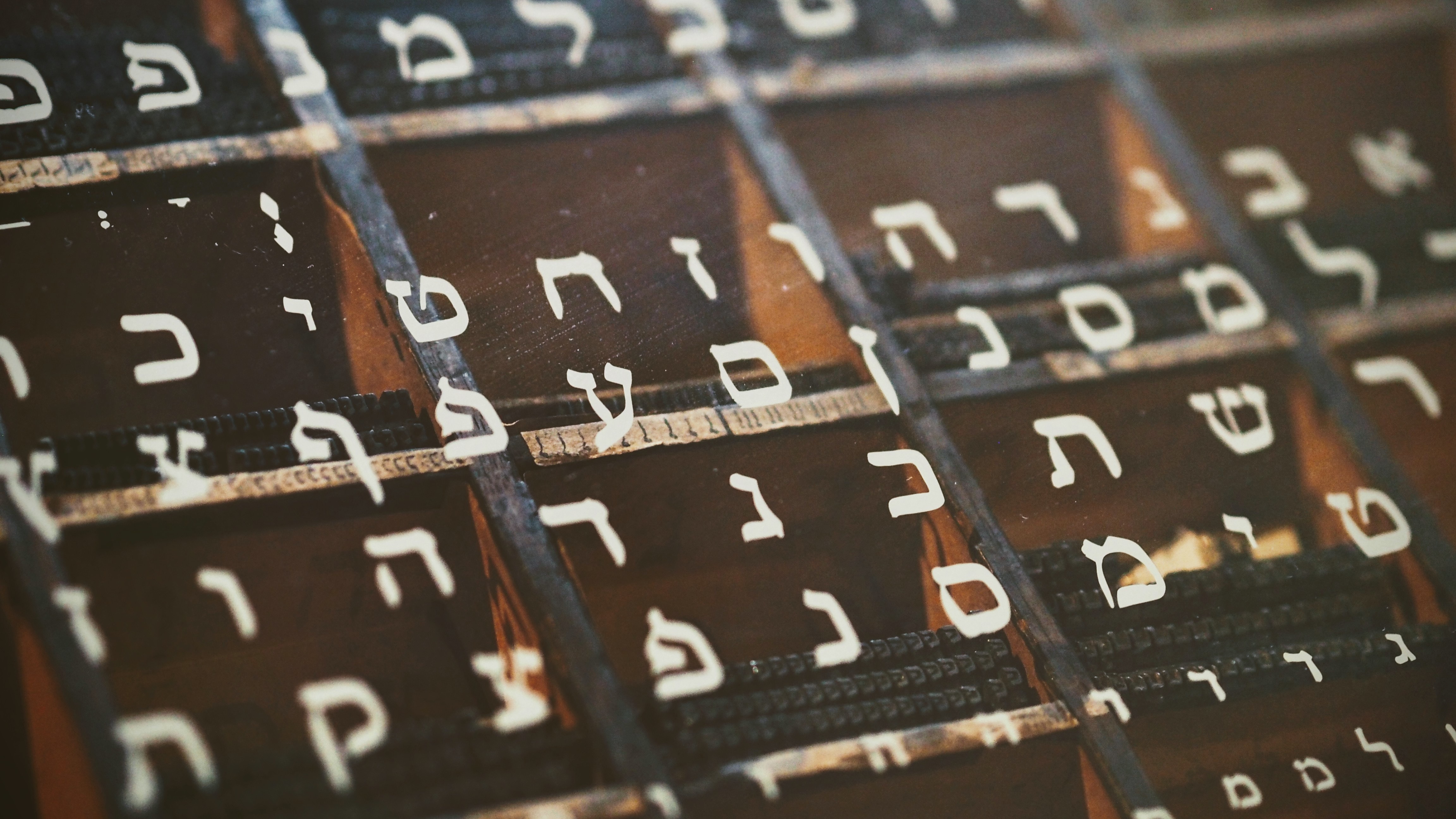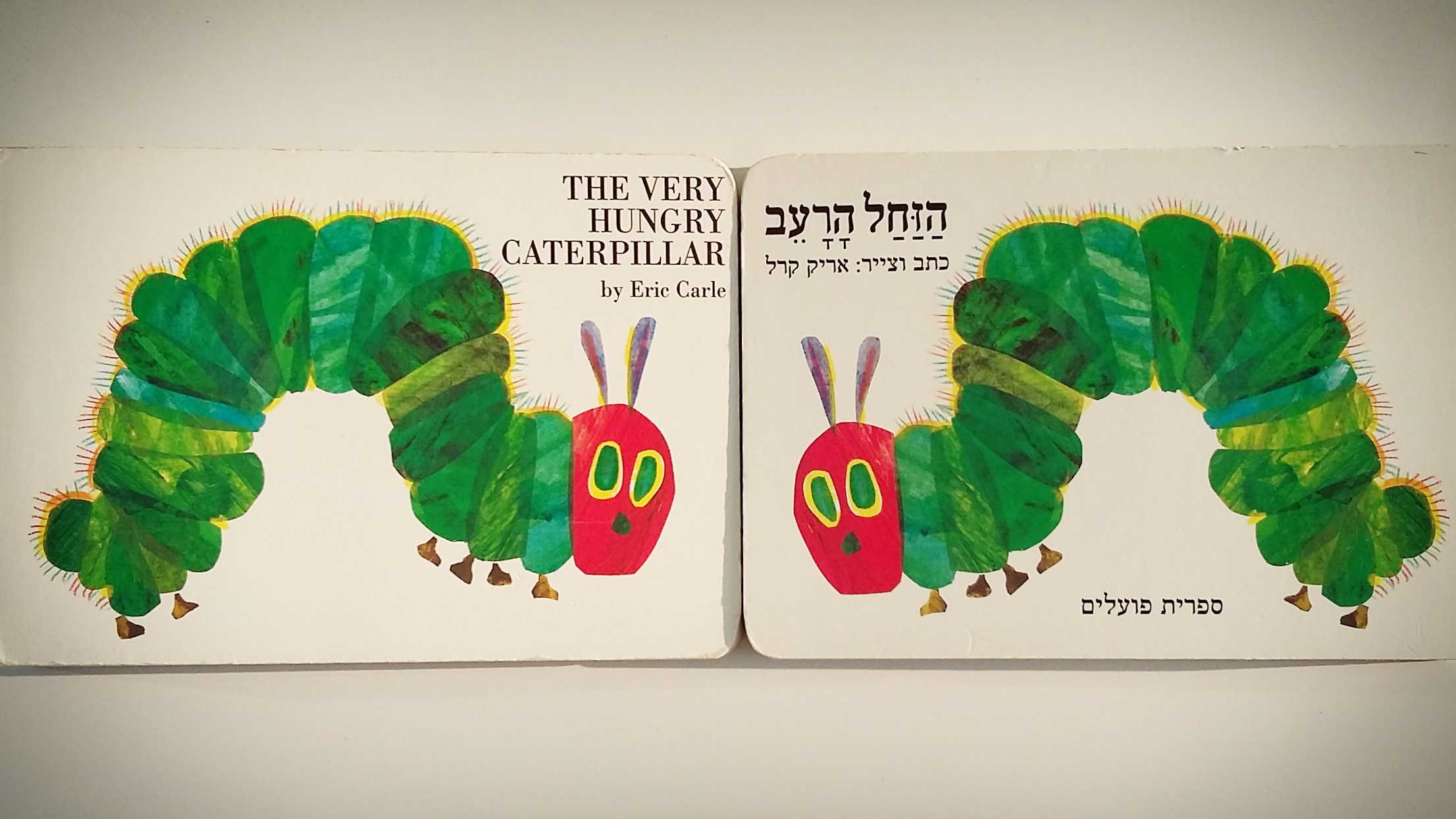The Foreign Service Institute categorizes languages in order of difficulty for native English-speakers. While languages like French and Spanish are considered easiest, Hebrew is a Category Three: "A language with significant linguistic and/or cultural differences from English."
In Hebrew, you'll find an entirely different alphabet, texts that are read from right-to-left, and several sounds not found in English. It's not impossible to become fluent, even if you're starting as an adult. However, you'll still need all the advice you can find to make it easier. Here are some useful strategies for beginners.
1. Don't Start With The Alphabet
The alphabet is usually a natural place to start learning a new language. But since the Hebrew alphabet is so different, experts don't recommend that you use it as a foundation. Instead, expose yourself to spoken Hebrew to start hearing sounds, patterns, and pronunciations. Listen for words you know and start picking up basic vocabulary. The alphabet will come later, and it will be easier if you already know some words and phrases.
2. When You Get To The Alphabet, Don't Be Intimidated
The Hebrew alphabet has 22 letters, plus five final form letters, sometimes called sofit forms. These are special characters that represent a letter when it occurs at the end of a word. That's just 27 letters total to master.

3. Learning Hebrew Is About Recognizing Patterns
Hebrew, like other Semitic languages, is based upon three or four-letter root words. These roots indicate the core meaning of the word. The meanings transform through prefixes and suffixes, but once you know the root word, you automatically know several words. You can start applying these patterns to other words to rapidly expand your vocabulary.
4. Practice Reading Without Vowels
Have you ever looked at a Hebrew text and noticed a whole bunch of dots and dashes? These are the vowels, and they’re used to help children or new learners. But as you graduate onto more advanced and modern texts, you'll see that vowels are left out. For practice, pick up a novel and scan it for words you recognize without vowels.
5. Read Things You Like
Many people take Hebrew classes with hopes of reading the Torah or other important texts. But even in English, old religious texts aren't exactly the most accessible literature.
If you enjoy learning through songs, poems, short stories, or comics, start there before you move onto seminal works of literature and theology. For example, check out the beloved childrens' books Goodnight Moon and The Very Hungry Caterpillar.

6. Recognize Words From Other Languages
Modern Hebrew uses many words from European languages; if you’ve previously studied languages, you have an advantage here. Take comfort in the vocabulary you recognize, and use it as a jumping off point for reading and conversation.
7. Speak Out Loud
Seek out opportunities to practice speaking, listening, reading, and writing in Hebrew. As with any language, you need to step firmly outside of your comfort zone if you want to make progress. Talking to yourself is great. Talking to someone else is even better.
Fluent City offers Hebrew classes for beginners, as well as those with some experience under their belt. Join our class to learn in a hands-on, conversational environment. Courses launch all year round - check them out today.

 Spanish
Spanish
 French
French
 Italian
Italian
 Arabic
Arabic
 Portuguese
Portuguese
 German
German
 Chinese
Chinese
 Japanese
Japanese
 Russian
Russian